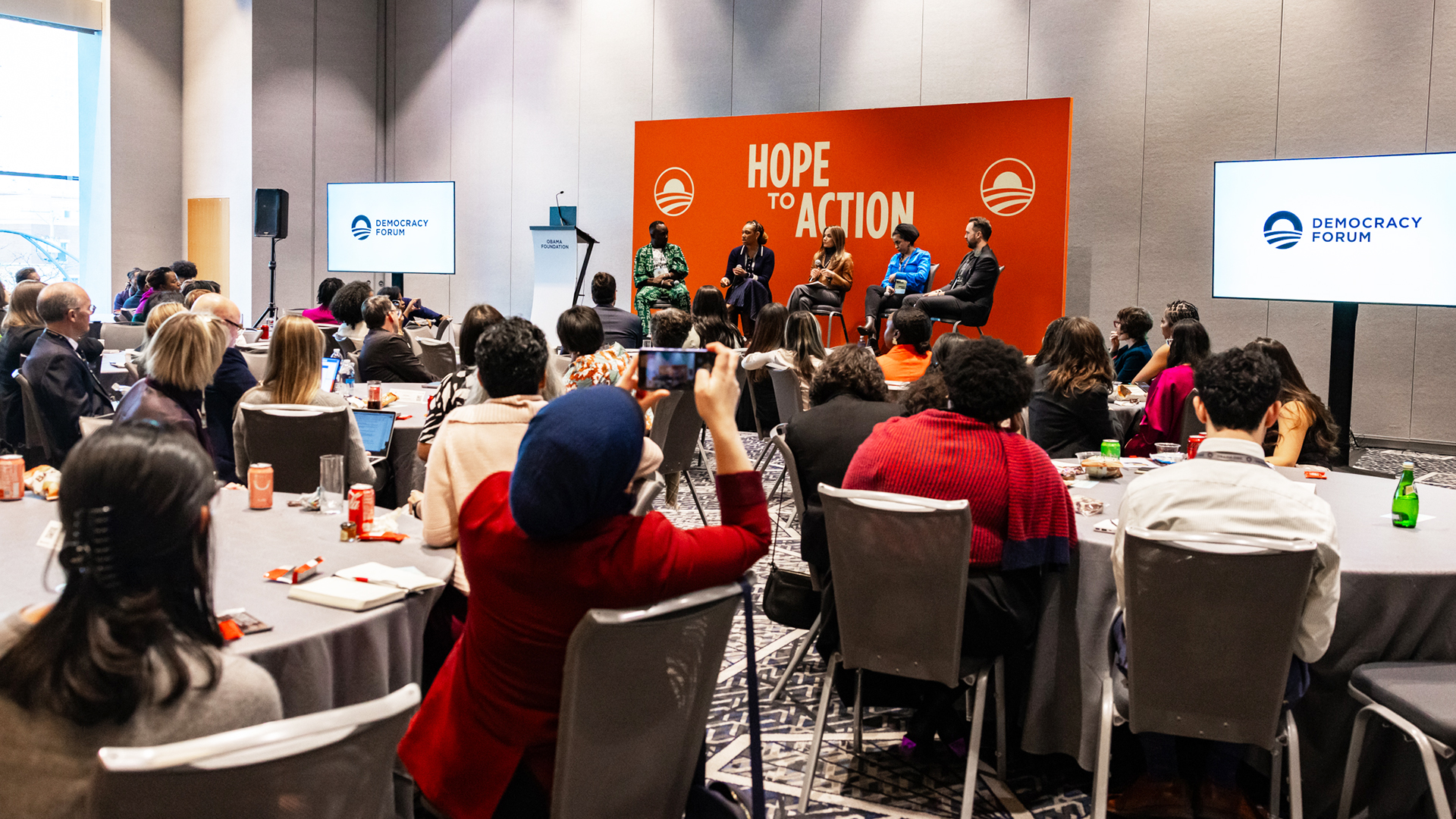At the 2024 Obama Foundation Democracy Forum in Chicago, iMEdD co-founder Anna Kynthia Bousdoukou led a panel of global changemakers who shared powerful stories of bridging divides and fostering trust.
“Pluralism,” the theme of the 2024 Obama Foundation Democracy Forum, is a “celebration of differences and a pillar of democracy,” said iMEdD co-founder Anna Kynthia Bousdoukou. Kicking off the Pluralism in Action around the World session, she invited the audience to draw “collective inspiration” from the efforts of Obama Leadership Network alumni across four continents.
The nine lives of the fourth estate

The 12 trainees in Volos embodied the absolute prerequisite for today’s quality journalism to survive and thrive: collaboration.
“We need leaders with ethics and empathy,” Bousdoukou said, explaining that leaders’ decisions should be “based on our priorities as citizens, but first and foremost as human beings.”
Coming from one of the most conflict-ridden regions in the world, social activist Wafa Eben Beri, a former head of government policy in the Economic Development Authority for Minorities in Israel, described how she is bringing together Jewish and Arab communities by creating a safe space for dialogue.
“We should embrace differences,” Eben Beri said, reflecting on her time as the only Arab student in her university class.
“For a whole semester, my Jewish [classmates] and I were like two parallel lines. I felt invisible.”
Ultimately Eben Beri, always the exemplary student, approached them for help in Hebrew.
“What brings us together is actually what we appreciate in others’ differences, and that’s something we all need to do in our work,” she noted.
Dominicca Troi Washington, an advocate for young women from Chicago’s South Side, shared how she founded The SHE Society Incorporated to run an after-school program that combines social-emotional learning with academic support for Black and Brown girls.
At 14, Washington was involved in an “extremely traumatic fight,” which left several peers bleeding, bruised and arrested.
“What difference would it have made, if somebody had sat down with us to discuss how to coexist and problem-solve across our differences,” she asked.
Following an extensive teaching career, she now helps girls and girl-identifying students handle conflict in ways that do not jeopardize their future opportunities.
“If we’re not taking a pluralistic approach to how we’re teaching them, then they’re not going to use those mechanisms as they get older,” she said.

Bringing the African ideal of Ubuntu to the forefront — “I am because you are; you are because I am” — Media Challenge Initiative CEO Mpindi Abaas discussed his work empowering young journalists in Uganda to challenge negative narratives and combat misinformation.
“To invite young journalists to practice,” Abaas said, “is to normalize this concept of pluralism as a life skill and as a lifestyle. When people feel left out, they resort to being extreme.”
Hate is part of the human experience and, at times, even a “dark joy,” Australian entrepreneur and innovator William Smith-Stubbs explained.
“We’re told we should avoid conflict, but conflict often leads to innovation,” he said.
His approach to pluralism at the Museum of Sticks & Stones, the nonprofit he co-founded, incorporates art, history, education and play.
“Live like kids,” he proclaimed. “Shout less and ask more.’
“All of you described the importance of trust,” Bousdoukou concluded, tying the thread between the panelists’ experiences in bridging divides.
She placed connection and acting on problems—rather than just describing and reacting to them—at the heart of the notion of pluralism.
“Let’s work together,” she urged attendees, “so we can start exchanging ideas.”
